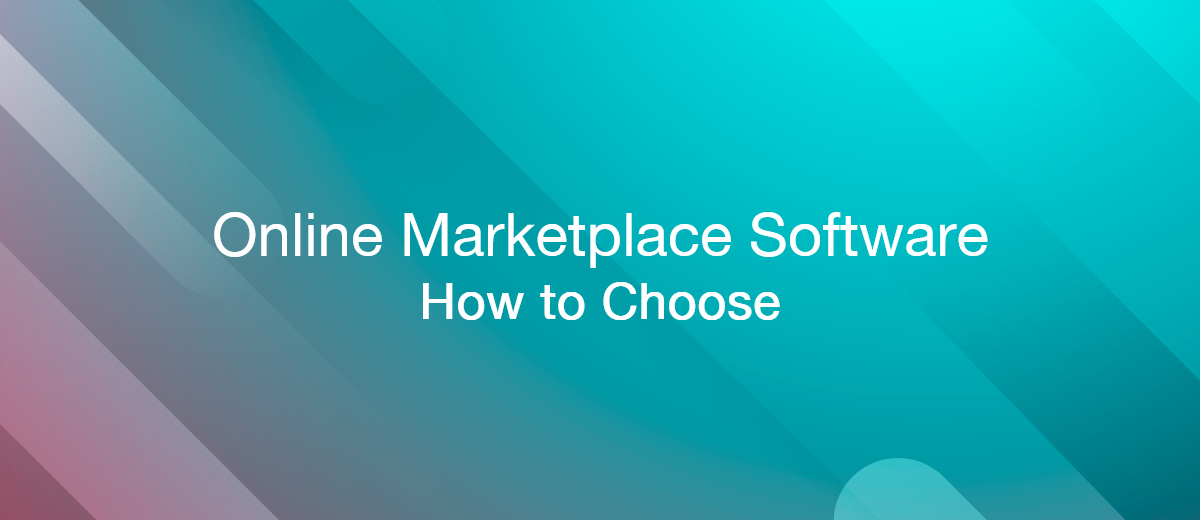Things to Consider While Selecting Online Marketplace Software
Over the past decade, eCommerce has experienced a significant surge in popularity. There are predictions of a similar rate of growth in future sales, making it an excellent time to consider creating an eCommerce store if you plan to sell products. With a bit of luck and a careful selection of platforms, you could be part of the explosive growth in eCommerce and have a highly successful business.
Taking advantage of this booming trend in eCommerce could be one of your best decisions yet. To get started, you can either hire a web developer to create your eCommerce site or use an existing software to save time and money. Using a pre-built online marketplace software reduces the barriers to entry significantly and provides a scalable and standardized framework that allows for ample growth opportunities.
To ensure that you select the right eCommerce software for your business, we have presented some considerations for you to review. Let's take a look at the main factors to consider when choosing online marketplace software.
SEO-Friendliness
It is important for the eCommerce marketplaces to be SEO friendly as it can be highly beneficial to have the marketplace rank high in search results. Every marketplace owner wants its customers to find them when they are searching for products/services like theirs. Some of the most important factors when looking for an SEO-friendly platform include:
- The capability to incorporate a blog.
- The option to utilize a custom domain name.
- The provision for customers to post reviews.
Comprehensive Product Management
Providing excellent product management functionalities, such as advanced search, should be a top priority to facilitate vendors and customers in achieving their objectives effortlessly. An elaborate and multi-dimensional product catalog is indispensable for any eCommerce store or marketplace. Advanced marketplace-specific catalog features can assist visitors in navigating through numerous vendors and hundreds or even thousands of products.
Additionally, it is essential to ensure that sellers on your marketplace can promptly and effortlessly create new product catalogs. Verify that your sellers can incorporate comprehensive details, including descriptions, images, availability, variations, delivery information, and more.
Integrations
When exploring eCommerce software, it is crucial to consider their ability to integrate with third-party APIs. A customizable software framework enables the easy integration of third-party tools to enhance the platform's functionality. The selection of required APIs for the marketplace will be based on the business model of your eCommerce venture.
Below are some of the most sought-after plugins to look for:
- Accounting plugins to manage sales, taxes, revenues, and profits.
- Email marketing tools to keep customers engaged and informed.
- A platform to incentivize customer loyalty.
- Apps to facilitate the shipping of products.
Pricing
When looking for an eCommerce software, one of the initial aspects to contemplate is the cost. Whether you are a newly established small business or an already established brick-and-mortar store, it is essential to have a clear idea of the price you will be charged. The charges can differ depending on the platform type chosen (self-hosted vs. hosted).


While searching for an affordable option, make sure not to compromise on the necessary features. Instead, try to evaluate the advantages and disadvantages of each platform to obtain the best value for your budget.
Internationalization
One significant benefit of online commerce is the ability for businesses to access global marketplaces without incurring exorbitant operational expenses. However, if your intention is to reach international markets, it is crucial to select an eCommerce platform that can seamlessly accommodate international business requirements. Critical aspects of international eCommerce include providing support for multiple languages, currencies, and diverse taxation regulations.
Incorporating local time zones can also eliminate confusion when tracking orders. Additionally, the regions or countries you serve may have varying product catalogs due to local availability or legal constraints.
Multiple Payment Options
Payment gateways and payout terms are critical considerations for vendors when selecting the appropriate eCommerce software. The favored payment method for worldwide online shoppers is eWallets, with 36% using this method of payment. Therefore, it is essential to establish a marketplace that supports multiple payment options, such as credit cards, PayPal, or bank transfers.
If your marketplace sells subscription-based products or services, implementing recurring payment systems may be an excellent solution. This feature enables automated payments, eliminating the need for manual monthly billing by the marketplace operator.
Security
Consumers are becoming increasingly concerned about security which is why nobody wants to provide their credit card information on an unreliable website. Therefore, it is vital to ensure that the platform you select has strong security features, although most software today typically includes robust security measures as a standard.
Verify that your platform supports HTTPS/SSL to provide a safe and secure checkout experience for your customers. It is also essential to ensure that the platform you choose is PCI (Payment Card Industry) compliant.
Mobile Friendly
Are you aware that mobile devices account for nearly 60% of all searches, and many of these searches result in purchases made on a mobile device? Consequently, it is crucial to search for platforms that enable customers to conveniently access your website and make purchases using their mobile devices.
Failing to create a mobile-friendly online store may result in a significant loss of customers who prefer to purchase items on their phones.
Customer Support
An eCommerce store that operates round the clock should have customer service available at all times as well. It is vital to understand how an eCommerce software manages customer support inquiries, especially during unusual hours, web traffic challenges, and average response times. Equally significant is the ability to transfer data associated with each customer's order history, preferred products, and other relevant details to the platform.
Vendor Experience and Expertise
Ensure that the vendor possesses the necessary experience and technical skills to meet the demands and intricacies of your business. It is also essential to verify whether they possess the expertise and familiarity with your industry. Dedicate time to explore case studies, customer feedback, and forums to determine whether the vendor can handle your eCommerce business.
Summing Up
Ultimately, finding software that complements your business is critical. Selecting the appropriate multi vendor marketplace software solution can have a significant impact on your success, and therefore, it is a process that necessitates careful consideration. Before committing, make sure to converse with several vendors and conduct a comprehensive comparison of their offerings. Once you have identified the perfect technical partner for your marketplace, you will have a significant advantage over your competitors.
Apix-Drive is a universal tool that will quickly streamline any workflow, freeing you from routine and possible financial losses. Try ApiX-Drive in action and see how useful it is for you personally. In the meantime, when you are setting up connections between systems, think about where you are investing your free time, because now you will have much more of it.

